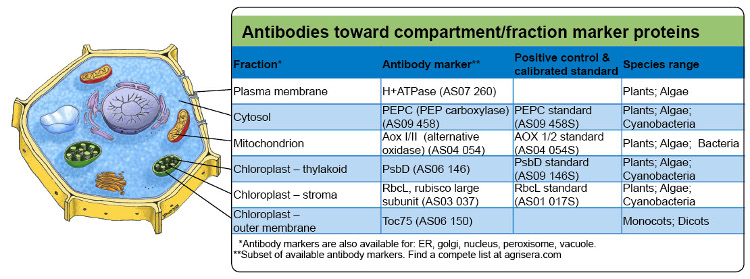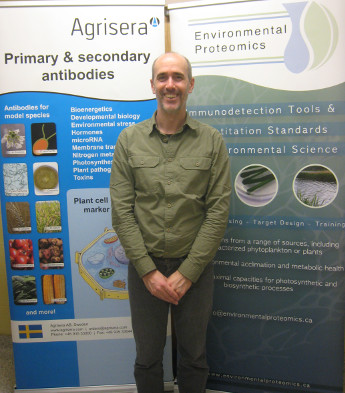
Agrisera AB has entered into commercial agreement with Avacta Group plc (AIM: AVCT), the global provider of proprietary diagnostic tools, consumables and reagents for human and animal healthcare. The aim is to develop Affimer based purification systems for proteomics applications. Agrisera has been established for over thirty years and specialises in development and marketing of antibodies and related research tools globally, offering several thousand antibodies for plant and algal cell biology research.
Plant proteomics is a rapidly growing field like human proteomics in which scientists are working to understand the relationships between proteins and diseases to drive a revolution in the way issues such as food security, safety and human health are addressed. In proteomics, samples are often dominated by highly abundant proteins making it difficult to detect the rare proteins that may be the most important in a disease process. Therefore, frequently, samples need to be enriched for non-abundant proteins to facilitate proteomic analysis. This is currently done using antibodies to extract the highly abundant proteins using a bead based affinity column. Affimers are an engineered alternative to antibodies. The market opportunity, whilst difficult to quantitate accurately, is significant. Agrisera AB and Avacta Life Sciences have entered into an agreement to develop Affimer based depletion products with improved performance and economics compared to the current systems. The agreement provides for commercialisation to be carried out by Agrisera under an undisclosed revenue sharing model.
Greger Nordlund, Chief Executive Officer of Agrisera, said: "We are very pleased to enter into this collaboration with Avacta employing their promising Affimer technology. This collaboration is fully in line with Agrisera's strategy to develop and provide novel, effective tools and reagents to the research community."
Dr Alastair Smith, Avacta Group Chief Executive Officer, commented: "Agrisera is a well respected, high quality provider of research tools for plant sciences research and I am delighted that we will be working with them to develop the first Affimer based product for the agri-bio market. "This market, in general, is not as well served as the human life sciences market by the large antibody suppliers, so there is a great opportunity for Avacta to establish Affimers in a growing market where there are many gaps, as well as pushing forward with our plans to address the human life sciences market."





